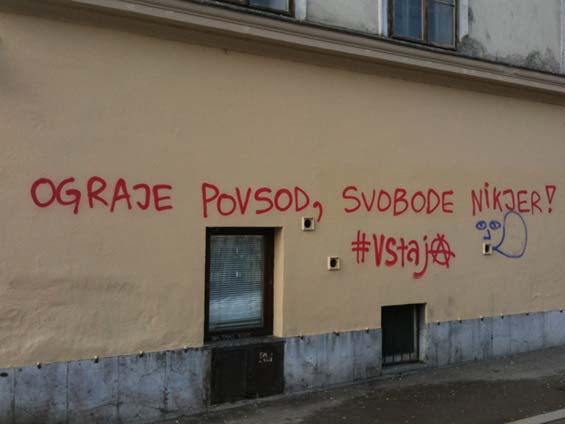On the technical side, the hashtag is nothing more than a clickable search query, a simple keyword that is attached to the post to add a bit of context to the content. An emoticon with a few more options. But for something so fundamentally basic, the hashtag turned out to be so much more, something almost magical. Sociology, communicology, computer science and other fields would probably have a lot to say about this phenomenon.
Today, hashtags form the ultimate crowdsourced media channels, some even managed to construct themselves as brands. It's hard to imagine something happening without its hashtag, and most TV shows and commercials already include them. Actually, they remind me of the Web's beginning, when everything had the AOL keyword attached to it, except now, keyword creation and curation is decentralized and distributed.

A graffiti in Ljubljana, Slovenia, persuading people to join the protests against corrupt elites. Hashtag included.
But there's something that's much more important than commercial applications: the planned or ad-hoc hashtags that form themselves in case of disasters or other extreme events. Millions can tune-in to to these instant channels, and participate with their own information. Such streams can go beyond a single service, existing above specific social media. These hashtags have the power to help people in need, and assist activists in making the world a better place. They are the ones that made the hashtag the word of the year 2012, marking the transfer of power from publishers to ordinary people.